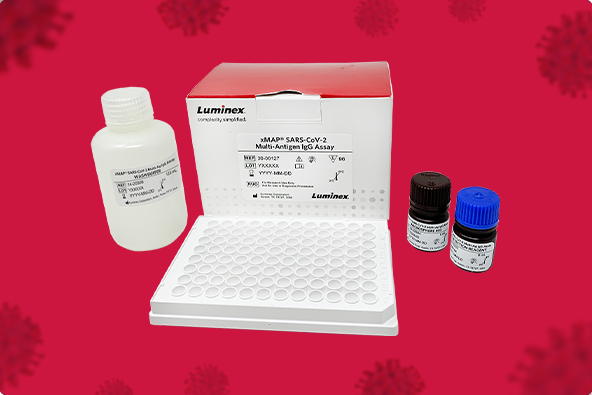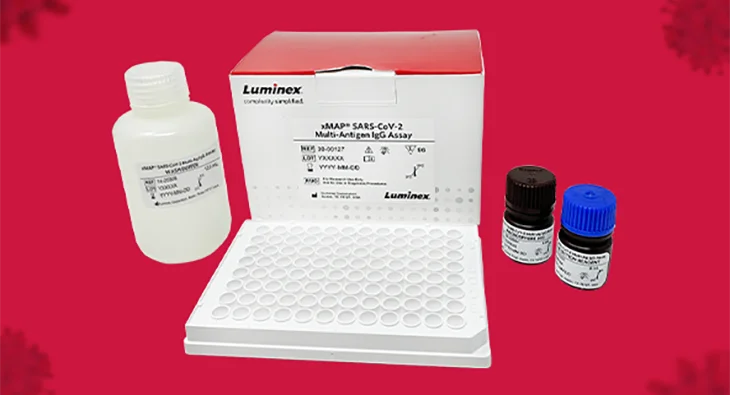xMAP® Technology Users Battle COVID-19 with New Serology Assays
Designed and built by researchers around the world, xMAP® assays shine light on the antibody response to SARS-CoV-2.

Our xMAP® Technology empowers researchers to build their own assays quickly, creatively, and effectively. Designed and built by researchers around the world, xMAP® assays shine light on the antibody response to SARS-CoV-2. If you haven’t seen the studies, they are well worth your time. Here, we provide a quick overview of some of the latest studies using xMAP to address the pandemic.
Identifying SARS-CoV-2 patients who have seroconverted.
Weiss et al. developed an xMAP serological assay and used it to assess the presence of antibodies for two SARS-CoV-2 proteins in sera from COVID-19 infected and uninfected individuals. This assay is critical because it can identify patients who have been infected with SARS-CoV-2 and have seroconverted, which will help characterize the immune response to the disease.
Similarly, Randad et al. developed an xMAP-based ten-plex SARS-CoV-2 immunoassay for detecting salivary antibodies that demonstrated significant correlation with serum sample results. The assay had 100% sensitivity and specificity for detecting prior SARS-CoV-2 infection.
Dobaño et al. developed quantitative, xMAP-based multiplex assays for detecting IgG, IgM, and IgA against a panel of eight SARS-CoV-2 antigens. For the best-performing combination of Ig-isotypes and antigens, the assay demonstrated 100% specificity for SARS-CoV-2. Sensitivity was 94.94% for positive samples collected at ≥14 days following the onset of symptoms, and 96.08% for those collected at ≥21 days.
Additionally, the Wadsworth Center of the New York Department of Health developed an xMAP-based serological assay for the detection of total antibody (IgG, IgM, and IgA) to SARS-CoV-2 in human serum, which received Emergency Use Authorization from the Food and Drug Administration. The assay demonstrated a sensitivity of 88% and a specificity of 98.8%, and was implemented to detect reactive and non-reactive SARS-CoV-2 antibodies.
Flexible solutions to complex problems
If a ready-to-use solution works better for your workflow, Luminex was recently granted Emergency Use Authorization for our xMAP® SARS-CoV-2 Multi-Antigen IgG Assay, which is a multiplex, highly sensitive and specific assay that detects the presence or absence of antibodies against three different SARS-CoV-2 antigens. By using multiple antigens, this assay may provide earlier, more sensitive results.
The SARS-CoV-2 pandemic continues with a daily emergence of new cases, so the implementation of serological testing, in addition to nucleic acid tests, is increasingly important to understanding the pathology and impact of COVID-19. xMAP Technology is the established benchmark for running multiplex serology tests, and is actively being employed by academic research labs and healthcare facilities to help diagnose COVID-19, profile the immune response, support vaccine and therapeutic development, and much more.


